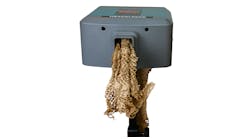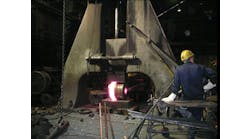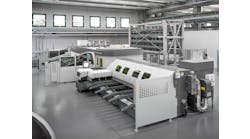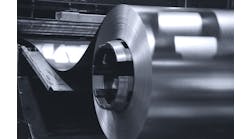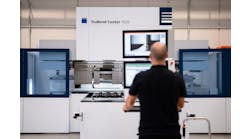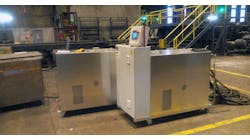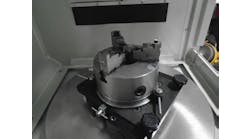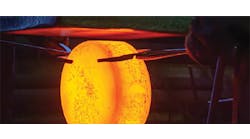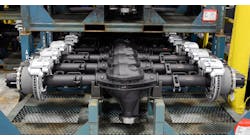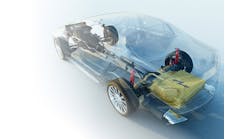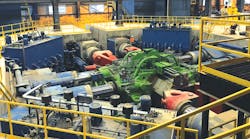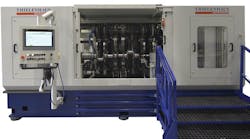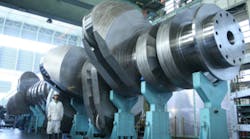The Ellwood Crankshaft Group plant in Sharon, PA, is the site of a landmark new forging system, a 35x35-m. multi-directional press that expands the group’s already wide range of highly engineered crankshaft products — which power engines used in locomotives, marine vessels, oil-and-gas exploration, power generation, and heavy-duty mechanical presses.
“This is the first time we will have the ability to produce the full range of continuous grain-flow, forged crankshafts in support of the world markets,” according to ECG president Brian Taylor. “We are now able to supply the full range of continuous grain-flow crankshafts to every industrial market in every region of the world.”
The new press entered into operation early last year, with its first project being a 300-mm bore crankshaft for a large gas engine.
Developed over a period of years, the 35x35-m, 8.5-m high press is set in a 6,000 m3 foundation. It has 317.5 metric tons of vertical, horizontal and circumferential post-tensioning tendons; 771 mt of reinforcement; and a self-contained hydraulic system, with three pairs of motors and pumps. It also has four, 3-MW electrical sub-stations for each hydraulic aggregate.
The upset axis of the new press involves two 80-MN opposing crossheads; the clamping, offset axis has two 75-MN opposing crossheads. Independent servo drives control 24 axes for position, speed, and pressure. The forging and decompression cycle controls ram parallelism and off-center loading.
Ellwood Crankshaft Group (ECG) is an integrated manufacturing operation, with carbon, alloy, stainless, and tool steels produced by Ellwood Quality Steels in New Castle, PA. The forging capabilities include three multi-directional closed-die, forging presses. ECG is also equipped to perform welding, heat treating, surface engineering, and finish machining, according to the needs of specific crankshaft designs as well as the group’s remanufacturing services for crankshafts and connecting rods.
The new multi-directional press had been in development for much of the past decade. The machine was designed and built by a European machine builder, after which followed an extended sequence of construction and then testing/acceptance processes.
While ECG continues to have available its previous multidirectional forging systems, able to produce continuous grain-flow crankshafts up to 6 m long and weighing 6 metric tons, mainly for engines, the new press is able to forge crankshafts up to 14 m long and weighing up to 50 mt. This covers a new range of crankshaft applications, for larger engines, pumps, and compressor systems.
The new press also can process other large, complex shapes, meaning ECG is able now to transform open-die forgings, large complex castings, and welded structures into new designs. This may include forged eccentric shapes, rectangles, cylinders, and flanges, for products like pinions, turbine rotors, tie and tension rods, shafts, special cups, single or multiple cams, blocks, and couplings.
